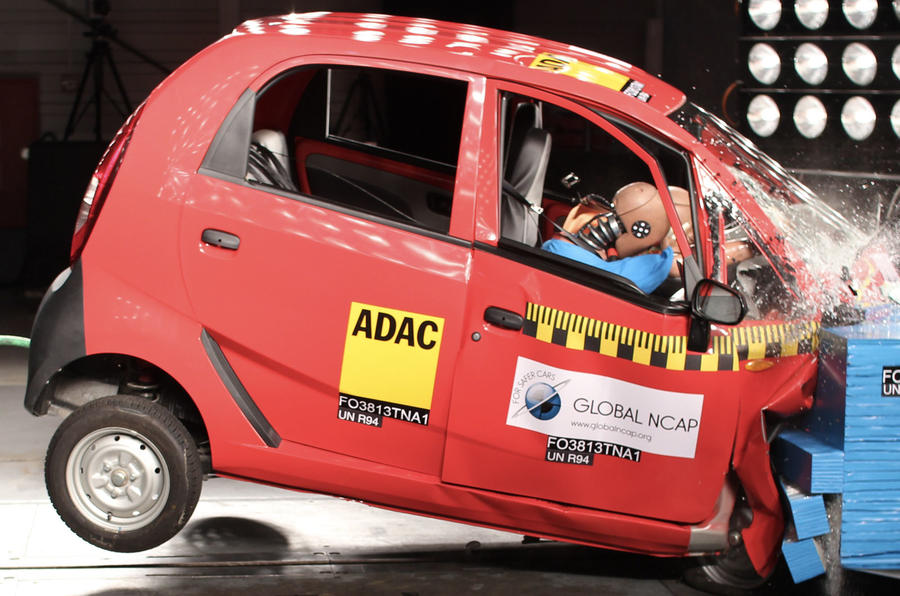The results of some of the popular Indian cars subjected to the Global NCAP tests have confirmed what we suspected all along – that Indian cars have appalling crash safety standards.
With no government-approved crash testing facility in India (a plan to build one has been delayed for years) there can be no proper crash safety regulations. Therefore, the crashworthiness of cars in India was always unknown. Until now.
NCAP’s first independent crash tests of some the best-selling cars in India have laid bare how unsafe these home-grown models are, complete with zero-star ratings. According to Max Mosley, chairman of Global NCAP, the safety standards of these cars are 20 years behind the five star standards of Europe and North America. A damning condemnation, no doubt, but should we be surprised? Not if you’ve been to India, where the concept of road safety is non-existent.
The statistics bear this fact out. With over 160,000 road deaths every year, India has the dubious distinction of having the worst road safety record in the world. Riding four (or even five) up on a motorbike without helmets is a way of life, and everyone moves around with a karmic belief of ‘it won’t happen to me’.
It’s not just the roads, either. People die falling out of trains and crossing train tracks, too, because health and safety is usually tossed out of the window. That’s sadly the state of mind of most people in India.
For the punter, too, safety isn’t a priority. Price, fuel economy and cost of ownership take precedence over ABS, airbags and crumple zones. The good news is that car buyers of late are increasingly aware of the latest safety features, but the bad news is that they still don’t want to pay extra for them. Not even airbags, which NCAP tests show are the biggest life-saver.
The fundamental problem here is the absence of contemporary safety regulations in India to force manufacturers to raise their safety standards.
The NCAP tests also show that home-grown cars such as the Tata Nano and Suzuki-Maruti Alto bodies have weak body structures that crush badly on impact. While it’s easy to get moralistic about these zero-star cars, the reality is that safety is directly proportional to costs. Are customers willing or able to pay for anything safer? The fact that the Suzuki-Maruti Alto is India’s largest selling car by far suggests otherwise.




Join the debate
Add your comment
Should we be surprised?
While we in the West do have higher safety standards and institutions moving things forward we have a Prime Minister who's leadership campaign was funded by an arms dealer.
It's not very often we see multinationals putting the safety of the Nation before profits as evidenced by Cameron's bribe to the Councils in an effort to push through licensing of the oil & gas industry to carry out hydraulic fracking to 64% of the land.
You could even argue that it is the multinationals like Monsanto who are exporting failing GMO seeds, and the many others who ensure the masses in India work in sub standard factories and pay so little are responsible for the fact that safe cars are not affordable and for too many are not an option.
Furthermore I expect safety standards to fall here in the UK as this government continues to lower the standard of living through inflation and forcing the young to work for their benefits as well as sanctioning the benefits of the disabled.
Looks like a race to the bottom where the profit of the corporations come before the creation of decent jobs enabling the working class to provide for their families.
That only shows that we need
VW are doing good ....